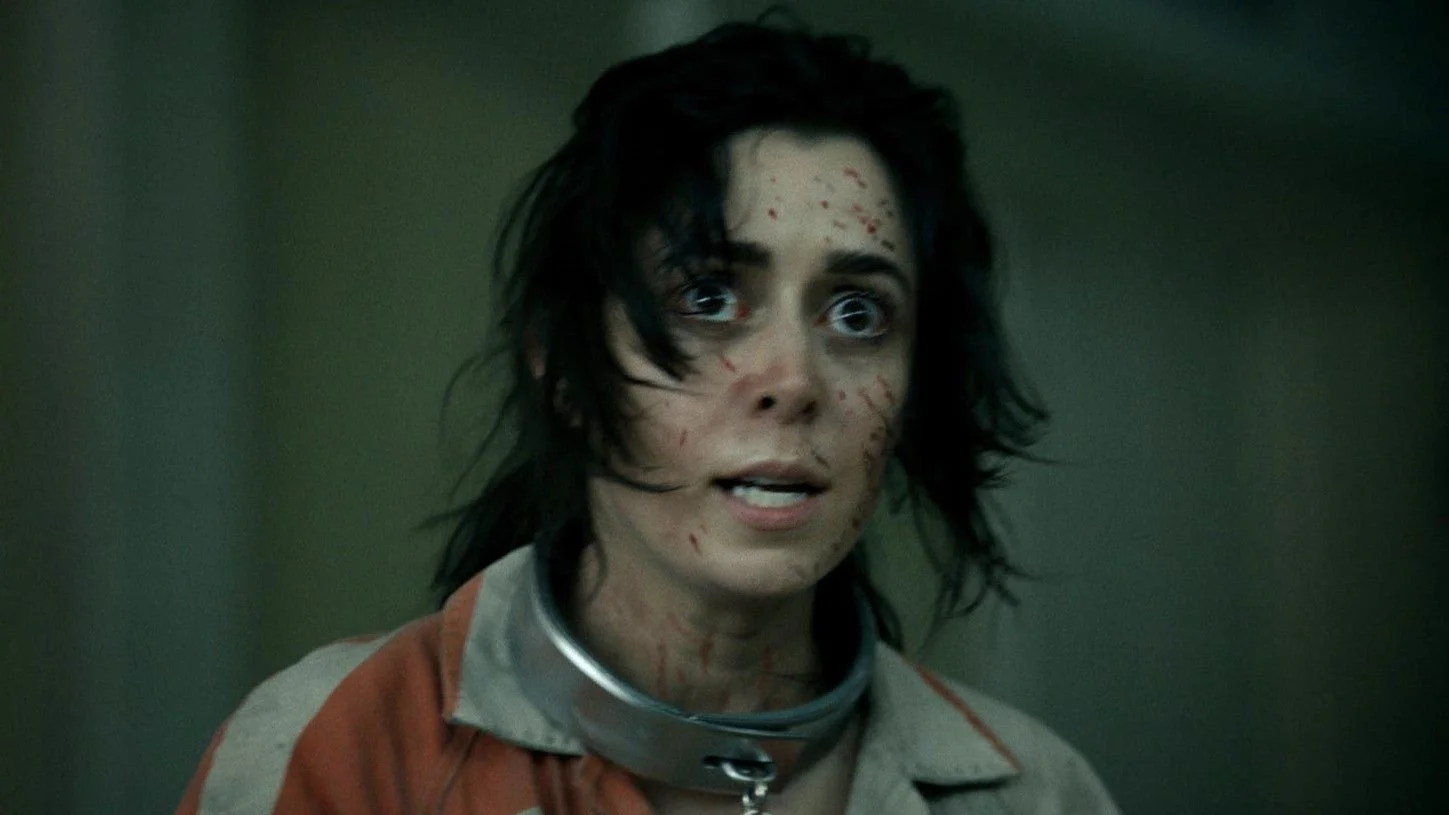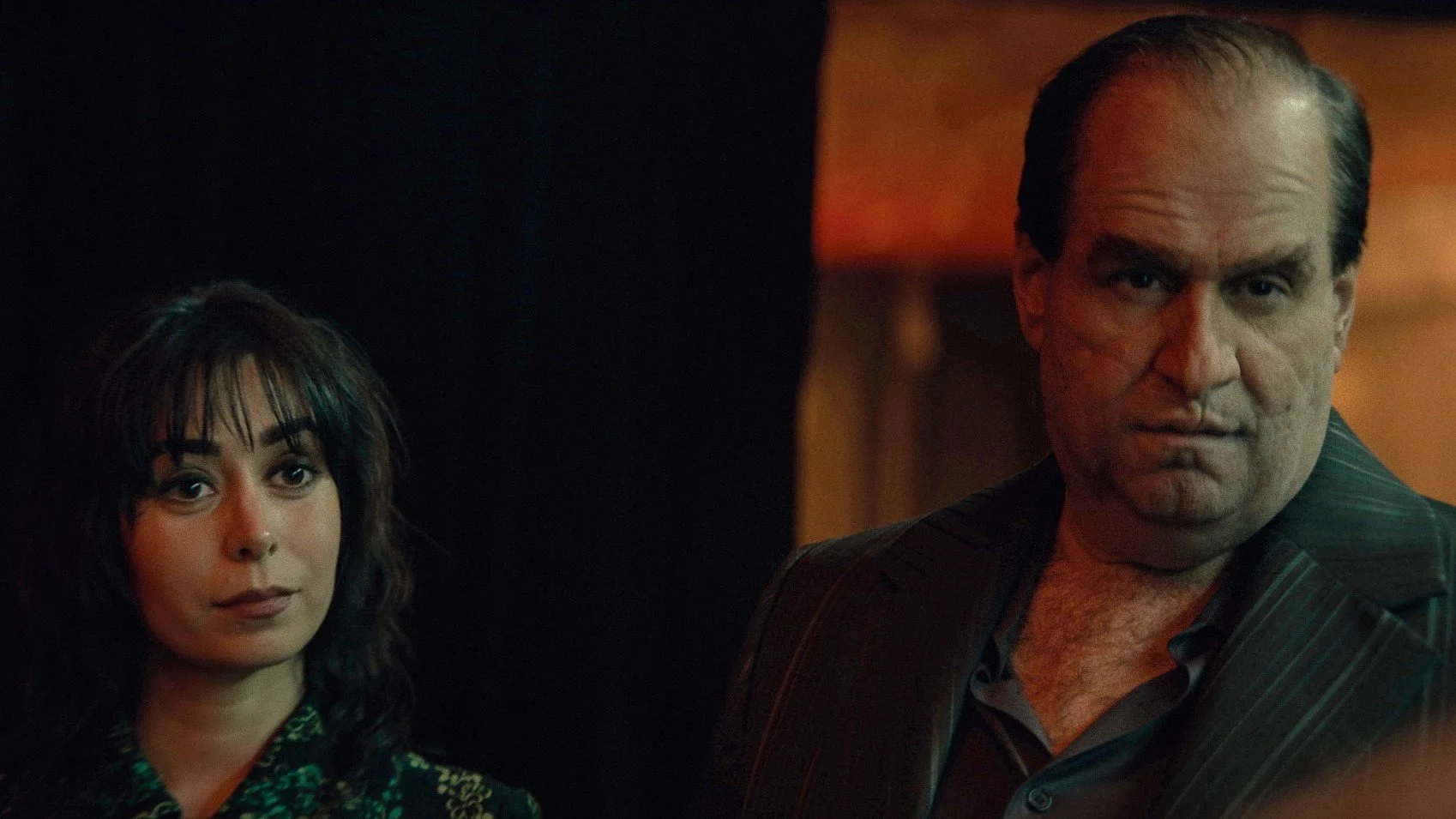I Love You, Sofia Falcone
Sofia Falcone was a footnote in the Batman folklore until she wasn't.
First appearing in 1997's seminal comic book The Long Halloween, she was a supporting character and merely cannon fodder for Two-Face. Her existence as part of the rotating cast of antagonists for the caped crusader was over before it started. It’s a good thing because it means Sofia was a clean slate. No one cared about "making her just like in the comic books". She was a prime candidate for thematic reinvention and it's exactly what happened in the new Batman-extended-universe HBO Max series Penguin.
Now, I'm the furthest thing from a comic book integrity fascist, but I didn't believe the skinny, doe-eyed Cristin Milioti could pull off such a brutal character. I was wrong. Not only Milioti and showrunner Lauren LeFranc created one of the most nuanced on screen psychopaths (for as much nuance as these people can show) I've had the pleasure to watch in years, but they also created a legitimately threatening female character that doesn't have a bullshit power to justify her scariness. She just exists and it’s enough somehow.
I have a love/hate relationship to how psychopaths are portrayed in fiction, but Milioti's Sofia Falcone works well and there are, I believe, multiple interesting reasons why.
Nihilism is not Psychopathy and Vice Versa
The dominant interpretation of what psychopaths are supposed to be like on screen was established by Anthony Hopkins in the movie adaptation of Thomas Harris' novel The Silence of the Lambs in 1991. Some type of jovial super predator for whom matters of life and death are just a game. Someone to whom the rules of society don’t apply, which enables him to gleefully transgress the most basic precepts of our social contract like not killing and consuming fellow human beings because you’re bored.
Hannibal Lecter is unmistakably a psychopath and has been rewritten in a more nuanced and understated way since, but his existence is guided by the principles of nihilism (at least according to conspiratorial video game Assassin’s Creed): nothing is true, everything is permitted. Lecter does not give a fuck about anything. but not all psychopaths think like this. Not all psychopaths are nihilists and quite frankly, they’re more interesting characters if they have something to give a fuck about.
Sofia Falcone clearly does. She gives a fuck about her brother Alberto (who’s killed in the opening scene) because he visited her at Arkham Asylum. She gives a fuck about her family name because it bestowed power and status upon her and she sees the death of her old man (which happens in Matt Reeves' excellent The Batman) as a way to consolidate and even transcend it. She's a Falcone, but she sees a pathway to becoming the Falcone. Sofia’s got skin in the game. She wants the world to work.
Another underrated aspect of why her character works so well is that she's not constantly committing acts of violence in order to prove to the audience that she's dangerous. She's ordered Oswald to be tortured at some point (which is not outside the normal realm of what mobsters do for shits and giggles), but otherwise I don’t believe she hurt a fly. Whatever it is that she did, it’s in the past and it defined who she is in everyone's mind and it’s driving her insane. Although she's ruthless, Sofia is self-conscious.
It's a smart detail because psychopaths don’t necessarily discard what other people think of them. They don’t care what people think of anyone else and they will use just about anybody, but if it’s about them, well, it affects them. Milioti and LeFranc built an interiority to Sofia Falcone that most on screen psychopaths simply don’t possess. She's not an invulnerable fiend, she just doesn’t give a fuck when it’s not about her and she makes everything about herself like a realistic psychopath would.
A Psychopath in a World that doesn’t Give a Shit
Another screenwriting decision that validated Sofia Falcone narratively is that she's never the most vile person in the room and, even more important, her transgressions are never moral. She's not a lying, cheating opportunist like Oswald and she's not lazy and entitled like the absurdly unpleasant Johnny Viti or the other fat, lazy mobsters who inherited Carmine Falcone's piece of the pie without ever earning it. From a moral standpoint, she's been the wronged party here and her desire to exert revenge is relatable.
Last narrative I remember that nailed this quirk so well was Dan Gilroy’s stunning 2014 directorial debut Nightcrawler where psychopathic protagonist Lou Bloom used his lack of empathy as a super power to become successful in the old, uncaring news business. Although he was objectively a terrible person, you rooted for Lou because (like Sofia) his character flaws.were the most endearing. He did horrible stuff night after night, but he did it to succeed in a world that didn’t want him to and that… is relatable!
An effective on screen psychopath can (and needs to) be a complex person, but it's also a reflection of our darkest desires. They act the way we'd want to act under duress, not like they're above it. They’re submitted to the same set of rules than other characters, but the quirk is that they don’t believe in them and they try to lie, cheat and murder their way out of it the way we'd do it if we weren't so terrified of consequences. In a way, Sofia is the consequences of sins that happened off screen. She’s a problem that returns.
Everyone wants to be the problem more than having them, isn’t it?
*
At the time of this essay, I’ve only seen the first three episodes of Penguin, but I'm already all-in on the series like I haven't been on television in a couple years. It understand the proper investment vs. payoff ratio in order to keep people's attention and it also understands that payoffs are not always necessarily plot twists. Sometimes it’s just a scene that reveals something that’s going to shift our perception of a certain character, like the monologue Colin Farrell delivered in episode three.
You’ll come for Farrell's Oswald Cobblepot (renamed Cobb for grittiness purposes), but you’ll stay for Milioti's Sofia Falcone. She's doesn't have much to do with the original character, but she's better in about every possible way. I loved that she was a big and strong girl in the comic book, but Milioti brought her elsewhere and it’s equal part writing and interpretation. Psychopaths are not above the reality, they’re a part of it and they’re fascinating characters because they break and bend it, not they never ignore it.
* Follow me on Instagram to keep up with new posts *








